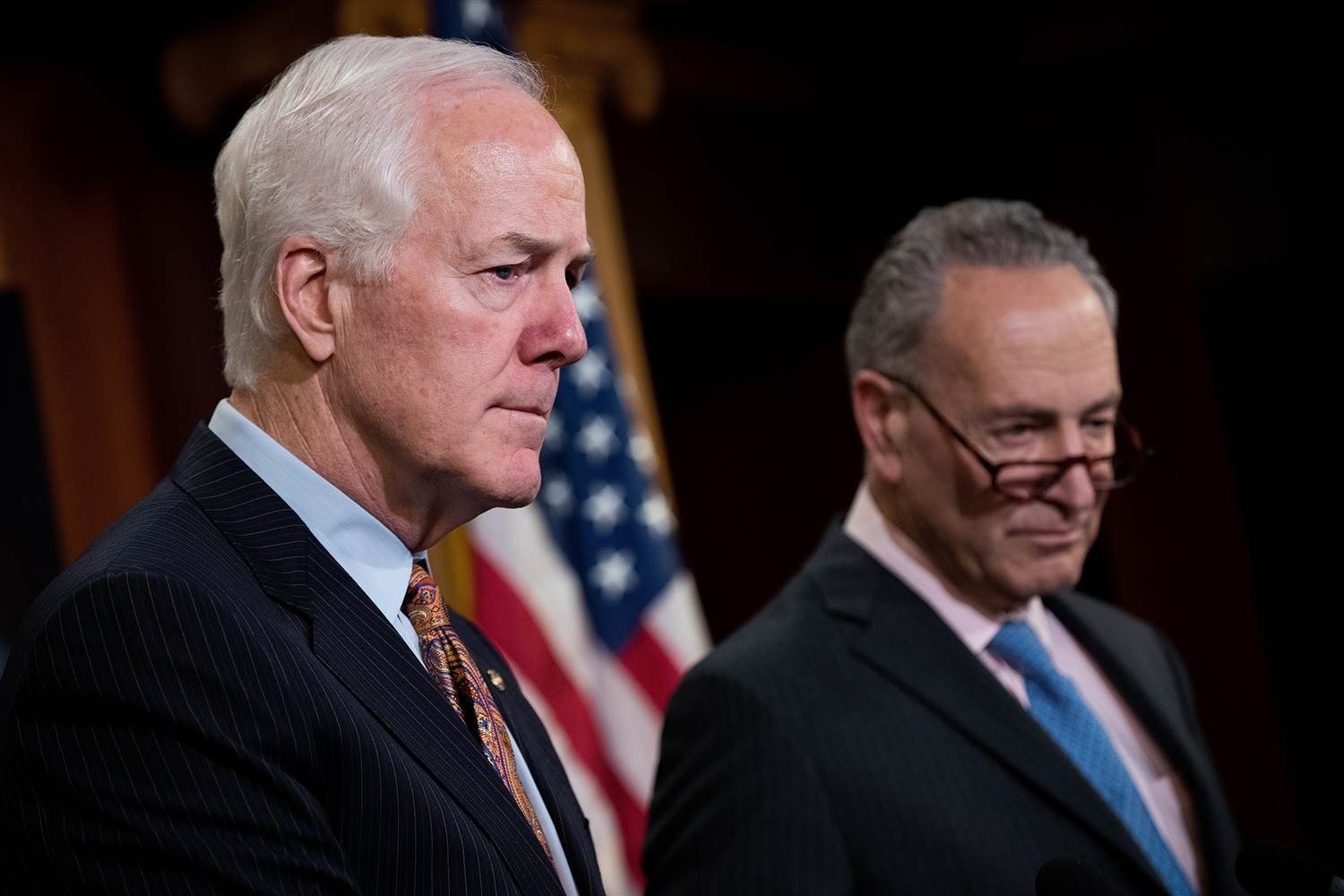Risk of US-Saudi Arabia tension outbreak
(Baonghean) - US-Saudi Arabia relations are at risk of "storming" again when the US Senate passed a bill allowing survivors and relatives of nearly 3,000 people killed in the September 11, 2001 terrorist attacks to sue the Saudi Arabian government for compensation.
If President Barack Obama fails to prevent Congress from passing the bill as he pledged during his visit to Saudi Arabia in April, the prospect of a breakdown in relations with his Middle East ally is clear.
 |
| Senator John Cornyn and Senator Chuck Schumer at a press conference announcing the bill on May 17. Photo: Getty. |
Leaked information
At the time of President Obama's visit to Saudi Arabia, the US press was abuzz with news about the missing 28-page report of the 9/11 Commission, focusing on the role of the countries involved. Although the US government has not officially released the content of this document, some sources said that keeping these 28 pages of the report secret in the basement of the Capitol building was "to protect the US-Saudi Arabia relationship".
Therefore, American public opinion is still seething with suspicion about whether or not the US government obstructed the investigation into foreign sponsorship of the 9/11 attacks in order to protect senior figures of strategic allies in the Middle East.
Several American newspapers, such as the New York Post and Fox News, have exploited various sources, from investigators from the Joint Terrorism Task Force (JTTF) in Washington DC as well as investigators at the Fairfax County Police Department - who participated in the investigation of 9/11.
The information that the investigative press agencies have obtained leads to the Saudi Embassy in Washington DC as well as the Saudi Consulate in Los Angeles. The New York Post even obtained information about telephone communications between a trainer of the two hijackers in San Diego and the Saudi diplomatic mission in Washington DC.
Allegations of Saudi Arabia's involvement are not new, especially since 15 of the 19 hijackers involved in the attacks were Saudi nationals. However, Saudi Arabia has always denied these allegations, asserting that there is no evidence of government involvement in the incident.
Therefore, the US Senate's passing of a bill allowing lawsuits against the Saudi Arabian government for damages is considered a heavy blow to the layer of protection that Saudi Arabia has built up for more than 10 years.
 |
| Relatives of nearly 3,000 people killed in the September 11, 2001 terrorist attacks can sue the Saudi Arabian government. Photo: BBC. |
America's dilemma
The bill, titled “Justice Against Terrorists Act,” was introduced in September 2015 and received bipartisan support in both houses of Congress, including presidential candidates Hillary Clinton and Bernie Sanders. The bill passed the Senate Judiciary Committee earlier this year, and was passed again by the Senate on May 17.
According to the procedure, the bill still needs the approval of the House of Representatives, and finally must be signed into law by the President. However, Mr. Obama has threatened to veto the bill if it is passed by the House of Representatives because of the risks to the United States and its citizens. Secretary of State John Kerry also warned: "Enacting the law will expose the United States to lawsuits, strip away national sovereign immunity and create a terrible precedent."
Under current law, other countries have limited immunity from being sued in U.S. courts. The new bill, if passed, would create an exception and encourage other countries to adopt similar laws, potentially endangering the United States and its citizens, government officials and diplomats abroad.
In addition to the risks to the United States and its citizens, the immediate consequence of the bill passing the House and Senate is the breakdown of relations with its ally Saudi Arabia. Saudi Foreign Minister Adel al-Jubeir once told US lawmakers in Washington that the country would sell $750 billion in government bonds and many other assets in the US if the bill passed.
This move could cause a mass exodus of foreign investors from the US market. Not only that, the already-distant alliance relationship would also be pushed to the brink of collapse. With this outcome, the US would “lose” more than “gain” as it still needs Saudi Arabia in a series of issues such as the fight against the self-proclaimed Islamic State (IS), intervention in the world oil market, etc.
Therefore, experts believe that President Barack Obama will find every way to prevent Congress from passing the bill "Justice to Punish Terrorists", or at least find a way to "delay" the incident, not letting it affect the last half year of his presidential term - a term marked by a series of "milestones" such as normalizing relations with Cuba, reaching the Iran nuclear agreement...
Thuy Ngoc

